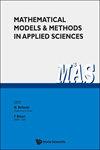不可再生投入和废物存量:向循环的最佳过渡
IF 3
1区 数学
Q1 MATHEMATICS, APPLIED
Mathematical Models & Methods in Applied Sciences
Pub Date : 2023-01-01
DOI:10.12988/ams.2023.917446
引用次数: 0
摘要
自然资源存量正在急剧减少,当前关于储备枯竭的辩论突显了它们长期以来的关键作用。本文讨论了可再生资源在回收和开采过程中的管理问题,以及向循环经济转型对消费和福利的短期影响。数学模型可以支持最大化社会福利和保护环境的有效计划。针对某一商品的生产,研究了在有限时间范围内在开采和回收之间分配劳动力的最优控制模型。一个合适的废料价值函数允许在未来减少浪费和保持自然库存。证明了问题的适定性,并给出了最优解的一些定性特征。本文章由计算机程序翻译,如有差异,请以英文原文为准。
Non-renewable input and waste stock: optimal transition towards circularity
Natural resource stocks are drastically shrinking and the contempo-rary debate on depletion of reserves highlights their crucial role over time. This paper deals with the management of exhaustible resources when recycling and extraction are employed, as well as the short-term effects of the economic transition towards circularity on consumption and welfare. Mathematical modeling may support effective plans for maximizing social welfare and protecting the environment. Concerning the production of a certain good, an optimal control model is studied to allocate labor between mining and recycling over a finite time horizon. A suit-able scrap value function allows for reducing waste and maintaining natural stock in the forthcoming future. Well-posedness of the problem is proved and some qualitative features of the optimal solution are stated.
求助全文
通过发布文献求助,成功后即可免费获取论文全文。
去求助
来源期刊
CiteScore
6.30
自引率
17.10%
发文量
61
审稿时长
1 months
期刊介绍:
The purpose of this journal is to provide a medium of exchange for scientists engaged in applied sciences (physics, mathematical physics, natural, and technological sciences) where there exists a non-trivial interplay between mathematics, mathematical modelling of real systems and mathematical and computer methods oriented towards the qualitative and quantitative analysis of real physical systems.
The principal areas of interest of this journal are the following:
1.Mathematical modelling of systems in applied sciences;
2.Mathematical methods for the qualitative and quantitative analysis of models of mathematical physics and technological sciences;
3.Numerical and computer treatment of mathematical models or real systems.
Special attention will be paid to the analysis of nonlinearities and stochastic aspects.
Within the above limitation, scientists in all fields which employ mathematics are encouraged to submit research and review papers to the journal. Both theoretical and applied papers will be considered for publication. High quality, novelty of the content and potential for the applications to modern problems in applied sciences and technology will be the guidelines for the selection of papers to be published in the journal. This journal publishes only articles with original and innovative contents.
Book reviews, announcements and tutorial articles will be featured occasionally.

 求助内容:
求助内容: 应助结果提醒方式:
应助结果提醒方式:


